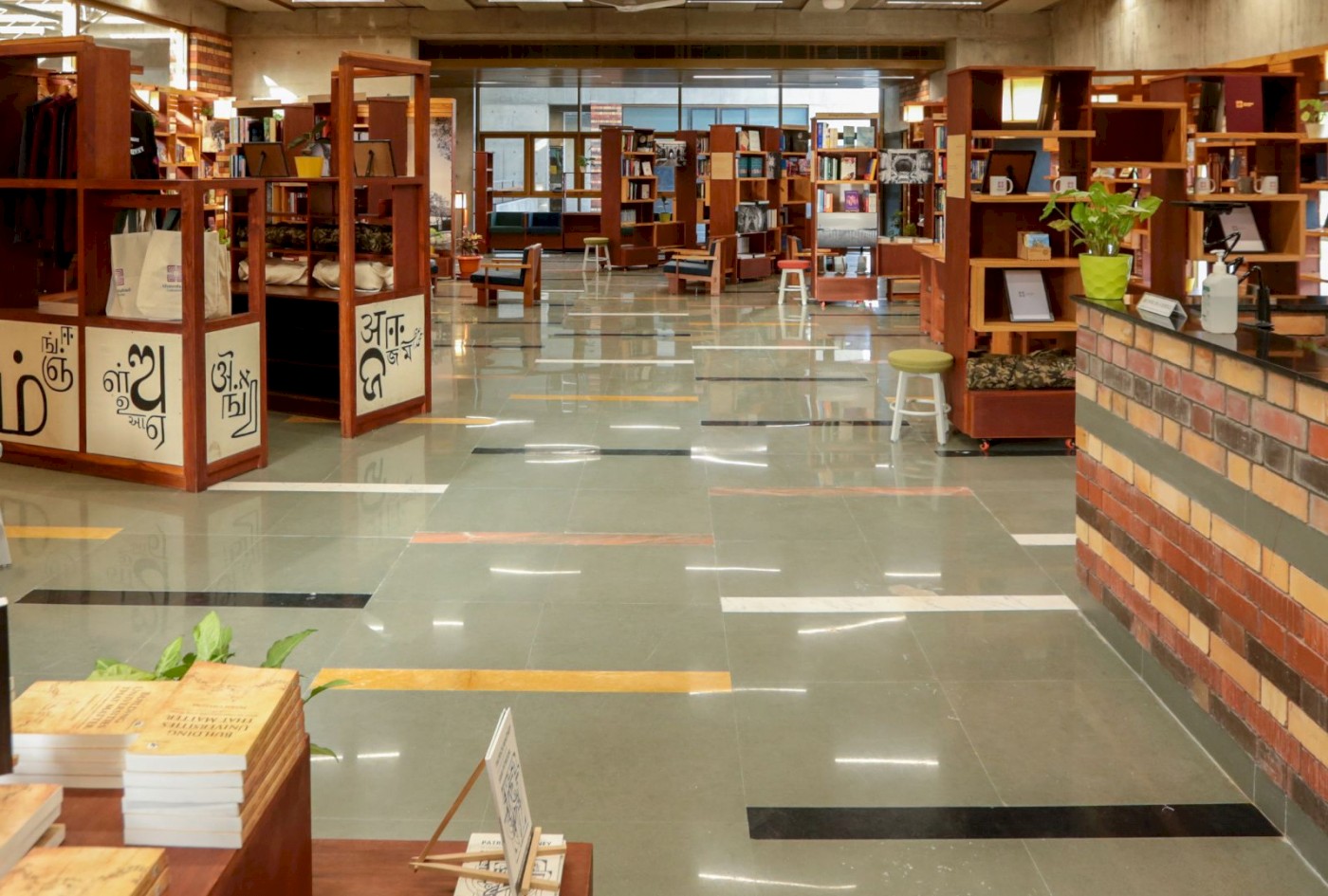
Manjil Saikia, Assistant Professor, School of Arts and Sciences, is an avid reader who visits the University Bookstore frequently in search of good books. He shares, "The advantage of visiting a bookshop can hardly be exaggerated for bibliophiles. I have discovered several genres of books I would not have normally read if I had just seen them online."
Professor Saikia tells us how the pandemic rekindled his love for reading. "When the COVID-19 pandemic hit, there were so many epidemiologists trying to find clues as to where was ground zero or if the virus was lab-born, etc. All of this seemed like detective work, and so I decided to read about other diseases that people have studied. One of the first books on this topic I read was Spike - The Virus vs The People: The Inside Story, Jeremy Farrar and Anjana Ahuja, Profile Books, 2021' which gave quite a thrilling account of the COVID-19 story. Later, I came to know about the Epidemic Intelligence Service (EIS) of the CDC in the US, and I read many exciting accounts of their successful work - such as on Lassa fever, Marburg virus, Zika virus, etc," he says. Now, even amidst his academic duties and research work, he religiously makes time to read every day.
Books are dangerous, in a positive way. They challenge our preconceptions, provoke our thoughts, encourage us to think critically and spark new ideas. They expose our minds to seek new possibilities and introduce us to diverse cultures, experiences, and perspectives. Books are dangerous because they hold the power to change our lives. Yet, despite its profound impact on our mind and soul, our bookstores are dying, and the habit of reading is slowly fading away.
The fate of physical bookstores has been a cause for concern among readers and advocates of reading everywhere. The convenience of online e-commerce, easy access to quick digital downloads and next-day deliveries have slowly replaced the cherished experience of visiting a bookstore, strolling through the aisles, browsing the titles, flipping the pages of a book, and engaging in serendipitous discoveries. Ahmedabad University Bookstore is an effort to undo it.
Marius Kociejowski, former antiquarian bookseller, poet, essayist, and author, writes in his memoir A Factotum in the Book Trade, "The best bookstores promise that there awaits a book that will ever so subtly alter one's existence." Pallavi Narayan, Associate Professor of Practice, School of Arts and Sciences, experienced something similar. "As an undergraduate student in 2004, I was selected to participate in a literature festival, where I attended a session with a Turkish author reading from his novel. The author was Orhan Pamuk, a giant of contemporary literature, and the book was My Name is Red. Several years hence, I found myself embarking on my doctoral studies on the entire body of Pamuk's works. Reading that one book thus sparked the entire trajectory of my research and career and resulted in me publishing my own book, Pamuk's Istanbul: The Self and the City, last year," she shares.
Bookstores are not just a place that sells books. They are an intangible cultural heritage and have been instrumental in shaping our society. An intellectual hub that allows residents of a locality to come together and engage in debates and discussions. A space where people can exchange ideas and share their thoughts without any judgment. A place often frequented by people in search of inspiration to unleash their creativity. For many, books are the only ticket to see the outside world without ever leaving. Professor Narayan shares these same emotions and says, "Because of reading that one novel, I have travelled to numerous conferences abroad, been granted fellowships, and met amazing people along the way. Reading can help you chart your imaginative journey in ways you cannot fathom. I encourage all, especially students, to read widely and deeply and to expand their reading in terms of place, time or even language."
During the launch of the University Bookstore, our Vice Chancellor, Pankaj Chandra, expressed his vision for it, "There is a large population of people in the society who are unable to discover authentic material that is researched well, that is factual, and that helps build advanced knowledge on issues and ideas more than what newspaper articles or popular writings provide. The Ahmedabad University Bookstore is an attempt to fill this gap."
The Bookstore reflects the philosophy of Ahmedabad University - its interdisciplinary focus, its world of practice, and its research orientation. Initially, the Bookstore was where Project O-Tenga cafe stands today. With years, as the University grew, it grew too. Today, it enjoys a central location at the University Centre, where the hustle and bustle of the University community never stops. Yet, when anyone enters the Bookstore, all the outside commotion miraculously dies out, and its quietness instantly engulfs the visitors.
Today, it largely caters to serious readers of Ahmedabad, both from academic and non-academic communities. It has become a hub where residents and visitors of the city can discover the depth and richness of culture, history, politics, literature, and languages, not just of India but the world. Professor Saikia, who discovered a book on Assam here, says, “I once bought a book called Burden of History by Udayon Misra. I have not seen this book anywhere. There is not much literature about Assam and The 1947 Partition, so I was excited to read it.”
Speaking about its collection of books, Professor Chandra adds, "It is a thoughtfully crafted space that hosts an impressive array of books by well-known publishers, university presses, academics and thought leaders by virtue of their deep expertise in niche fields. From Gandhi to Marx, from Pinker to Diamond, from algorithms to aesthetics, there are books straddling multiple disciplines in this unique Bookstore. To gaze across the shelves is like considering a world of opportunities."